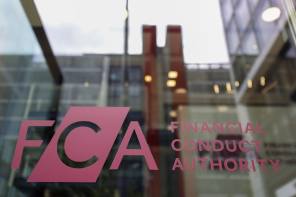

With Brexit uncertainty still hanging over the UK, investors may be scrambling to invest their money overseas, in various asset classes, or not at all, to minimise their exposure to the stock market.
It is all too common for clients to panic during times of political and macroeconomic upheaval, pulling money out of investments in the belief cash will be a better store of value.
But before clients do anything, it is worth considering how much value there is in holding cash. Could it be a useful strategy at this time or any other?
Is cash king?
Udit Garg, head of wealth management at Sun Global Investments, says: “Cash is a long-term strategy and [yields] very low returns. Dependent on circumstances, I wouldn’t allocate more than 30 per cent [to cash] under any scenario.”
He adds: “However, when it comes to short-term investment opportunities, under the Brexit scenario, hedging against the pound could be an interesting bet.”
Clients should bet on the euro and convert it back into pounds depending on the Brexit outcome, suggests Mr Garg.
Andrew Rees, investment manager at EQ Investors, also questions the value of holding excessive amounts in cash.
“I would be hesitant to hold too much cash in portfolios with the possibility of a Brexit outcome so close. While many believe that cash is the most defensive asset available, we see risks to holding sterling cash in certain outcomes,” he explains.
MPs voted down Prime Minister Theresa May’s deal earlier this month, by a smaller margin than the first defeat in January, but this prolonged the uncertainty around the UK’s departure.
The defeat has prompted a number of additional votes to be held. The EU has agreed to extend the Article 50 period until April 12 at least – though this depends on whether MPs approve Mrs May’s deal in a third vote, at the time of writing.
Flight to safety
Mr Rees believes that remaining invested in the FTSE-All Share index provides greater diversification than holding cash in terms of Brexit.
A weaker pound is, in fact, a positive driver of growth for FTSE 100 companies as those in the index derive the greater part of their earnings from overseas.
On the topic of the FTSE, Mr Rees also says:
- Remaining invested in the FTSE All-Share provides a level of diversification. A no-deal scenario will likely see sterling fall, in which case he expects those large-cap constituents predominantly exposed to foreign currency earnings (such as BP or Diageo) will likely perform well.
- If the withdrawal agreement passed, or Brexit was cancelled, this would likely result in positive performance of the UK domestic-focused mid-caps within the index.
David Coombs, fund manager of the Rathbones Multi-Asset Portfolio Funds, says investors need to consider that cash will clearly not move in nominal terms when financial markets fluctuate, but will equally not provide any positive return to portfolios if equities fall.
“Some other safe-haven assets, such as government bonds, would be likely to provide more material positive support during a flight to safety. We look to balance cash exposure with other safe-haven assets to tackle this,” he explains.
Adventurous or cautious?
Several others share the view it is more more important for clients to diversify into safe haven assets, such as bonds and gold, rather than hold too much cash in times of turmoil.
Mr Garg suggests: “Holding stocks and bonds would be the best strategy.”
Mr Rees explains the main source of foreign currency exposure in portfolios comes from investment in foreign equity markets, and it is the more adventurous portfolios that usually have a higher allocation to foreign equity markets.
Therefore, he asserts, portfolios with more foreign equities exposure are, in fact, more diverse in currency terms when compared with more cautious portfolios.
Mr Rees adds: “Given the outlook for sterling is so volatile, more cautious investors should think about allocating a small part of their fixed income allocation to high quality investment grade debt denominated in foreign currency, such as highly-rated sovereign debt, to add additional currency diversification.”
Mr Garg agrees with this view that investing in government debt could be one solution to minimising the impact of Brexit, but thinks clients should be focusing on emerging market bonds.
He says: “Emerging markets are currently one of the more attractive as their bonds are on track for their best quarter of returns in three years.
“India, for example, has a higher number of younger workers than the US and this will boost the economy much more than say in China, which has an ageing population.”
Josh Saul, managing director of the Pure Gold Company, says he has seen a 187 per cent increase in sales of physical gold bar and coins over the past four weeks, at the peak of Brexit-related turmoil.
Mr Saul also saw a 234 per cent increase in the number of people withdrawing equities within their pensions and self-invested personal pensions to invest in physical gold due to political uncertainty.
“They’re not only abandoning cash; many clients have sold equities or even property, and are buying physical gold, which tends to maintain or increase in value during times of crisis, to protect their wealth,” he adds.
Dennis Hall, managing director and financial planner at Yellowtail Financial Planning, says: “Only hold as much cash as you need to; a good financial plan will inform you how much is enough.
“Don’t react to Brexit, it’s a small localised issue that matters less if you’re a globally diversified investor.”
He recommends investors stick with equities in the long term, because “if we didn’t have Brexit there’d be another worry exercising minds needlessly”.
Key Points
- While cash is a defensive asset, there are risks to holding too much of it in portfolios
- Bonds can be a useful safe haven asset class in times of turmoil
- Investors have been allocating to physical gold as a store of value
Why cash still matters
Brexit or no Brexit, clients may need to save cash for a number of other reasons.
Mr Hall thinks all clients should hold a proportion of cash should they want to buy a house, and more importantly, have two to three years of reserve funds saved up for essential expenditure.
Mr Garg says: “The amount of cash one needs to hold would depend on the necessary liquidity they need to maintain for risk scenarios. This is apart from long-term saving plans (a house, college or retirement).”
He also highlights that while diversification is needed in client portfolios, geopolitical events such as Brexit can lead to clients “overdiversifying”.
Mr Garg warns: “A varied portfolio will be much smoother and will be brought about by normal market fluctuations and combat longer-term stock market downturns. Going beyond this can quickly become counterproductive and result in greater problems being caused, as curbing downside risks will harm profit potential.”
Saloni Sardana is features writer at FTAdviser and Financial Adviser



